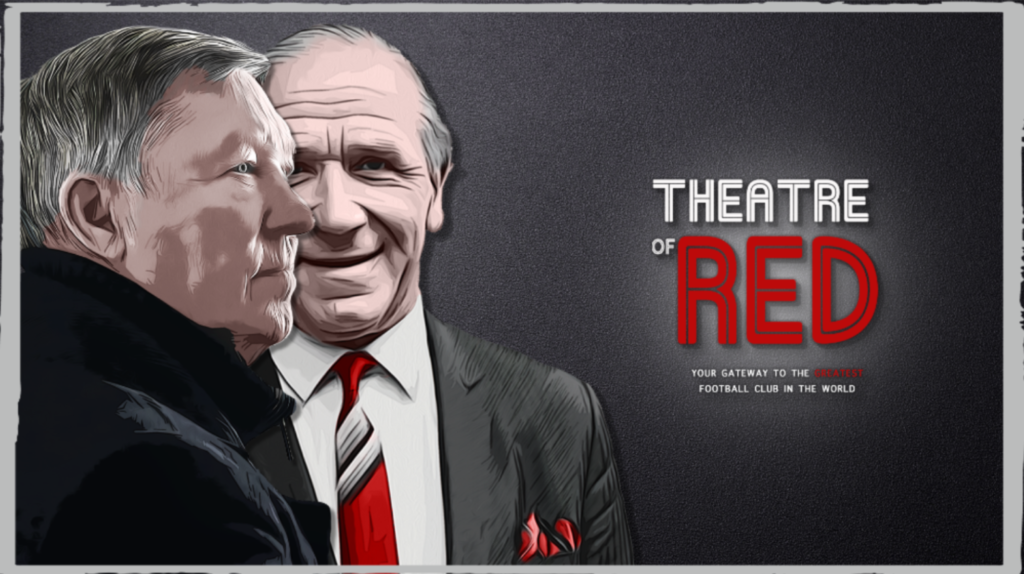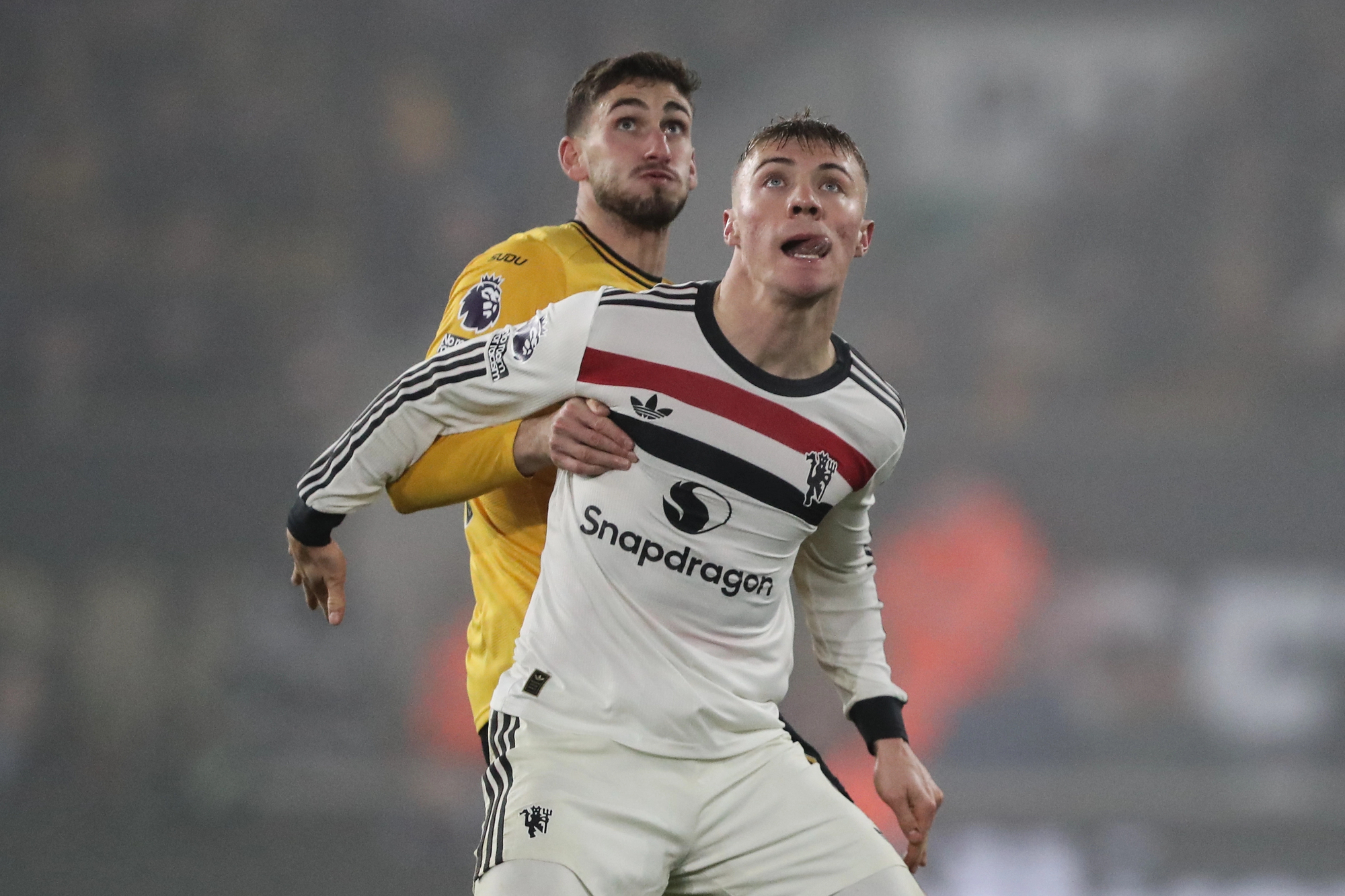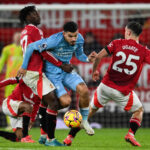Scapegoating an individual for the issues at a football club is nothing new. A who’s who list of players has suffered at Manchester United throughout the two-decade reign of the Glazers, with Rasmus Winther Hojlund the latest to sample the wrath.
Ruben Amorim inherited a rather wounded cause in the North West with silly expectations of his Harry Potter-style abilities to rectify issues immediately.
With bad results come media attention and the necessity to point fingers at individuals deemed culpable for illogical team performances.
Hojlund received his fair share of criticism following his arrival, and the present campaign that has returned few domestic goals has seen a sour opinion grow once more.
The 20-time English juggernauts find themselves in the rather peculiar position of 14th and only seven points from the relegation zone. It seems unthinkable, but this is the byproduct of complete mismanagement.
Bizarre decision-making is evident across the board, but some transfer fees paid for past and present squad members have left a lasting impression on the fanbase.
Here, we establish the fundamental fault many bestow upon the young Dane, with endless emphasis on the 64 million pound fee shelled out for his services.
But is the criticism warranted, or are many individuals simply jumping on the Red wagon to generate as much traction regardless of the implications of their agenda?
Boardroom incompetence returns ample ammunition for scapegoating
Realistically, a substantial transfer fee evokes an expectation from supporters.
Pressure would inevitably follow when United opted to place all of their eggs in a Rasmus-shaped basket. However, common sense must also prevail, and willingly deciding to ignore logical explanations for a fairytale narrative is absurd.
The Old Trafford outfit purchased a 20-year-old prospect with 87 appearances and 27 goals in Denmark, Austria and Italy. They bought talent and potential; they did not buy Ronaldo Luis Nazario de Lima.
Undeniably, they overpaid for the youngster. But in what world should incompetence at the boardroom level return any form of scapegoating towards a highly talented 21-year-old?
I draw the line with hyperbole and insignificant debates about the young man’s potential. Would-be tactical geniuses spend their days debating the value of their hours on football manager, with claims of insignificance and sensationalism spewed across Twitter.
Make no mistake, while he is far from the finished product, his achievements at the head of this shambolic Manchester group deserve far more recognition.
The numbers and why they actually matter
Firstly, allow me to address the inevitable elephant in this debate.
His career in the North West began frustratingly, and 14 Premier League appearances without a goal heaped ample pressure on his shoulders.
However, while some decided to focus on that alone, the former Atalanta hitman collected five goals in six Champions League outings.
Furthermore, following his domestic opener against Aston Villa on December 26, Hojlund would become the youngest player to net in six consecutive English top-flight matches.
When we expand on this, the metrics in the second half of his debut campaign – despite little to no service from his teammates – paint an undeniably promising picture.
| PL Goals from December 26 to season-end | Appearances | Goals |
| Cole Palmer | 18 | 16 |
| Alexander Isak | 17 | 14 |
| Erling Haaland | 16 | 13 |
| Rasmus Hojlund | 16 | 10 |
| Ollie Watkins | 19 | 10 |
| Mohamed Salah | 14 | 6 |
As stated above, he achieved this figure with little service supplied by his teammates. Is this a significant factor? Yes, it most definitely is.
Youth is the common denominator for many of the attacking names in the squad, with Kobbie Mainoo (19), Alejandro Garnacho (20) and Amad Diallo (22) viewed as a future fulcrum for the side alongside Hojlund (21).
But, these players are also learning their trade and are often culpable for questionable decision-making. Garnacho, like our young Dane, has seen his stock rise and fall amongst the fanbase as he endures ample critique and lambasting for behaviour on and off the field.
His role during a frustrating period in the final third played a crucial factor in the lack of goals in Erik ten Hag’s side.
| Attempts in the Premier League (2023-24) | Premier League goals | |
| Alejandro Garnacho | 100 | 7 |
| Marcus Rashford | 62 | 7 |
| Rasmus Hojlund | 38 | 10 |
One final point to clarify during his debut season was his clinical nature.
I am not naive, and I appreciate there is much work for Hojlund to realise his massive potential. He makes mistakes and is not entirely blameless when factoring in positioning and final third runs.
But the boy scores more often than not when presented with the opportunity, and his output compared with the top marksmen provides a startling realisation.
| Goal attempts | Conversion % | |
| Alexander Isak | 78 | 27 |
| Rasmus Hojlund | 38 | 26 |
| Erling Haaland | 121 | 22 |
| Cole Palmer | 109 | 20 |
| Mohamed Salah | 114 | 16 |
Present Day
From a distance and focusing solely on the numbers, his second season looks similar to his first.
Two Premier League goals from 14 appearances is the definition of underwhelming, and he will begrudge this output more than anyone else. However, as with any other player, you must gauge the entire scenario when profiling a situation.
Disregard the calamity surrounding Ten Hag, the appointment of Amorim and the adoption of a new system that has utilised the Danish international predominantly as a target man in its early hours – he has taken ten shots in the Premier League!
Seven of these have been inside the box, with two scored. Three have been outside of the area. Again, this is not entirely on teammates, but once more indicates the nature of this side’s inability to function as a final third unit.
His conversion rate of 20% is only three behind the imperious figure of Alexander Isak and four behind Mo Salah, both of whom have attempted 50+ shots.
Amad Diallo has also bagged two goals but has 30 attempts, while Alejandro Garnacho has netted three from 39 efforts.
Can you see the trend here?
When considering the Europa League, it is imperative to factor in the calibre of competition. But that does not mean we should disregard his accomplishments to accommodate an agenda.
Five goals from six outings is a superb output and equals his showing from the superior European campaign 12 months ago.
His teammates have found him more regularly here, with a conversation rate of 42% from 12 efforts on goal.
Additionally, his strike against Bodo/Glimt remains one of the finest examples of technical prowess I have witnessed.
But again, feel free to disregard this to support a fabricated claim about his inability to lead a forward line.
Inevitably, individuals will ignore all of this and remain committed to damning Hojlund’s ability, potential and output to generate traction alongside those who refuse to change their views.
Should Manchester United have moved to add an experienced striker like Harry Kane to aid in the development of the young centre-forward? Of course! But they did not.
This factor remains on the club and should not convolute the reality of Rasmus Hojlund, nor should it supply an avenue to promote the scapegoating of a talented young footballer.
It is far easier to promote his journey and celebrate his success. Players thrive on momentum. This unnecessary negativity is the definition of a counterproductive attitude. What happened to being a supporter of the players in your team?
Let us know your opinions in the comments and across our socials.
Recent Posts
- Kobbie Mainoo and Manuel Ugarte | The midfield future for Manchester United
- Liverpool 2-2 Manchester United | Five Talking Points
- Manchester United earn deserved point in Liverpool draw





Leave a Reply